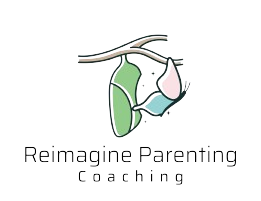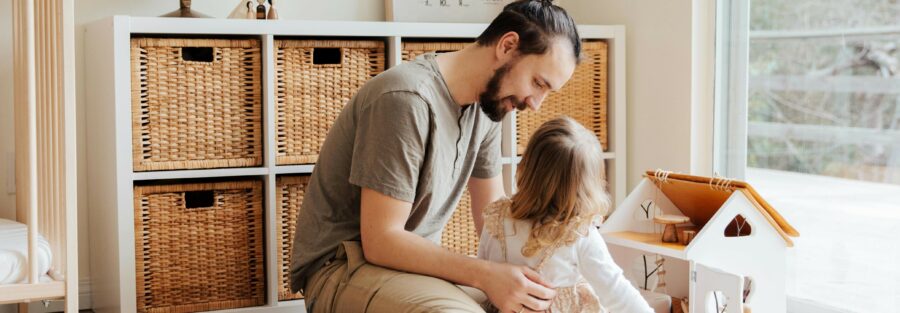“Play is for children!”
Or is it?
Play is a fundamental part of childhood, and essential for social and emotional development in children. It literally is part of proper brain development. With play, children learn how to solve problems, understand the world around them, and interact with other children. Imagination gives them a space to take concepts that are hard to understand and play with them without any real consequences. (ex. A young child playing with a doll, pretending to nurse it which they’ve seen mom do. They are exploring how bodies can feed babies and stop them from crying, but they don’t feed grown-up kids. Exploring where the milk comes from, and how that process works. They might not fully understand the answers, but they can explore it in their imagination and conceptualize a complex idea. ) We’ve come to see the consequences of not allowing children to have enough play when we’ve seen more screen time and a rise in mental health issues. Talking about the importance of play for children has become a very common topic in our social media world.
But what about when they aren’t young children anymore and start to grow up? Do we still see the need for play as they grow?
When they grow up to become middle schoolers, do they still need time to free play? Do they still need the freedom to express themselves without much adult intervention? Would they still benefit from recess time? YES, YES, and MORE YES.
Elementry schoolers, middle schoolers, high school schoolers, and yes, even adults still need play. It’s an essential part of our mental health and our emotional regulation.
Does play look the same as it did when we were 5? Of course not. We grow and as we do, our play evolves. But its importance doesn’t diminish.
What Does Play Look Like When Your Older?
To talk about what play is, we need to define play. Play is freely chosen, intrinsically motivated, and actively engaged.
Play is when the process is more important than the result. When you are trying to decide if something could be considered play is if when you are doing it, the end result is not where you get your joy. But rather, you get the joy of doing something. For example, if you are doing pottery, for it to be considered play for you, you’d enjoy playing the clay, moving it around, and if it happens to turn into something you want to keep is more of a bonus than the focus.
Play is enjoyable and freely chosen. For something to bring you joy, you would need to enjoy doing it. If you felt forced into playing and didn’t enjoy the experience, it would by definition not be considered play. For example, if you decided you needed to play more with your kids because you know that’s what good parents do, but then dread the very thought of playing polly pockets or doing tea parties. Then engaging in that activity would not be play because you are not enjoying yourself.
Play is actively engaged. This means that when you are participating in play you are either physically or mentally engaged in the activity. This could look like chopping wood, or it could look like playing a game, or it could look like imagining things inside your head. But you are somehow actively engaged in the process of whatever you are doing. That means watching tv where you don’t have to engage with it at all, would not be considered play. I would also like to suggest scrolling through social media is not really play, unless you are somehow actively engaged (like you are pinning ideas for home decor, or something like that.)
With this definition in mind, we can see how play can take many forms throughout life. While a child might find joy in building a block tower, an adult might experience similar feelings of flow and creativity by writing, painting, or even tackling a challenging home improvement project. The key is to find activities that are freely chosen, intrinsically motivated, and actively engaging.
Play is hard when you’re an adult
I think why play is so hard when you become an adult is we are raised in a world that values productivity. We are always supposed to be doing more with our time, getting more things done, and focusing more. (Here is a pill that will help you focus better!) You have a job, you have a house to clean, you have different social engagements, a business you’re trying to start, and somewhere in all that you are supposed to exercise too. Now, throw children and parenting in there it gets even harder to find time for yourself. (Self-care? Who has time for that?) Then you decide to homeschool your kids and now it feels like any extra time has gone out the window. Who has time to enjoy yourself when you have a mile-long to-do list? But your mental health is begging you to take a break. It tries making you sick, depressed, bored, and a number of other natural responses to a lack of relaxation, and enjoyment (play!).
Making Time for Play
It’s true, adult life throws a lot at us. But here’s the secret: prioritizing play isn’t a luxury, it’s a necessity.
Schedule Play: Block out time in your calendar, just like you would an appointment. Even 15 minutes of focused play can make a difference.
Find Your Tribe: Connect with others who share your interests. Join a club, take a class, or organize game nights.
Reframe Your Mindset: View play not as wasted time- but as an investment in your well-being.
Start Small: Don’t try to overhaul your life overnight. Begin with a simple activity you enjoy, and gradually incorporate more play.
Remember, you’re never too old to play. Embrace the joy, the creativity, and the stress relief that comes with letting loose and having fun. By making play a regular part of your life, you’ll be a happier, healthier, and more fulfilled adult.
Bonus Tip: Encourage your children’s play, but don’t forget to join them sometimes! Playing together strengthens bonds and creates lasting memories for everyone involved.
What are some ways you incorporate play into your life? Share your ideas in the comments below!

